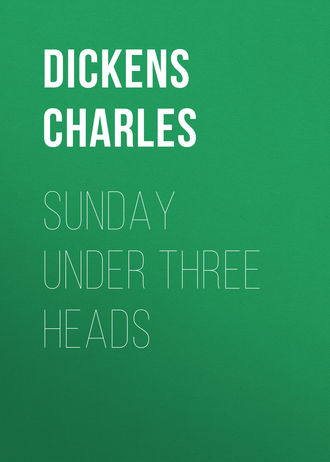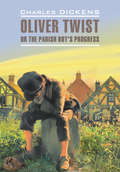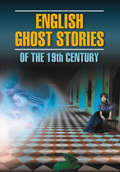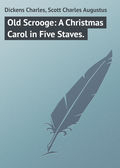
Чарльз Диккенс
Sunday Under Three Heads
II
AS SABBATH BILLS WOULD MAKE IT
The provisions of the bill introduced into the House of Commons by Sir Andrew Agnew, and thrown out by that House on the motion for the second reading, on the 18th of May in the present year, by a majority of 32, may very fairly be taken as a test of the length to which the fanatics, of which the honourable Baronet is the distinguished leader, are prepared to go. No test can be fairer; because while on the one hand this measure may be supposed to exhibit all that improvement which mature reflection and long deliberation may have suggested, so on the other it may very reasonably be inferred, that if it be quite as severe in its provisions, and to the full as partial in its operation, as those which have preceded it and experienced a similar fate, the disease under which the honourable Baronet and his friends labour, is perfectly hopeless, and beyond the reach of cure.
The proposed enactments of the bill are briefly these: – All work is prohibited on the Lord’s day, under heavy penalties, increasing with every repetition of the offence. There are penalties for keeping shops open – penalties for drunkenness – penalties for keeping open houses of entertainment – penalties for being present at any public meeting or assembly – penalties for letting carriages, and penalties for hiring them – penalties for travelling in steam-boats, and penalties for taking passengers – penalties on vessels commencing their voyage on Sunday – penalties on the owners of cattle who suffer them to be driven on the Lord’s day – penalties on constables who refuse to act, and penalties for resisting them when they do. In addition to these trifles, the constables are invested with arbitrary, vexatious, and most extensive powers; and all this in a bill which sets out with a hypocritical and canting declaration that ‘nothing is more acceptable to God than the true and sincere worship of Him according to His holy will, and that it is the bounden duty of Parliament to promote the observance of the Lord’s day, by protecting every class of society against being required to sacrifice their comfort, health, religious privileges, and conscience, for the convenience, enjoyment, or supposed advantage of any other class on the Lord’s day’! The idea of making a man truly moral through the ministry of constables, and sincerely religious under the influence of penalties, is worthy of the mind which could form such a mass of monstrous absurdity as this bill is composed of.
The House of Commons threw the measure out certainly, and by so doing retrieved the disgrace – so far as it could be retrieved – of placing among the printed papers of Parliament, such an egregious specimen of legislative folly; but there was a degree of delicacy and forbearance about the debate that took place, which I cannot help thinking as unnecessary and uncalled for, as it is unusual in Parliamentary discussions. If it had been the first time of Sir Andrew Agnew’s attempting to palm such a measure upon the country, we might well understand, and duly appreciate, the delicate and compassionate feeling due to the supposed weakness and imbecility of the man, which prevented his proposition being exposed in its true colours, and induced this Hon. Member to bear testimony to his excellent motives, and that Noble Lord to regret that he could not – although he had tried to do so – adopt any portion of the bill. But when these attempts have been repeated, again and again; when Sir Andrew Agnew has renewed them session after session, and when it has become palpably evident to the whole House that
His impudence of proof in every trial,
Kens no polite, and heeds no plain denial —
it really becomes high time to speak of him and his legislation, as they appear to deserve, without that gloss of politeness, which is all very well in an ordinary case, but rather out of place when the liberties and comforts of a whole people are at stake.
In the first place, it is by no means the worst characteristic of this bill, that it is a bill of blunders: it is, from beginning to end, a piece of deliberate cruelty, and crafty injustice. If the rich composed the whole population of this country, not a single comfort of one single man would be affected by it. It is directed exclusively, and without the exception of a solitary instance, against the amusements and recreations of the poor. This was the bait held out by the Hon. Baronet to a body of men, who cannot be supposed to have any very strong sympathies in common with the poor, because they cannot understand their sufferings or their struggles. This is the bait, which will in time prevail, unless public attention is awakened, and public feeling exerted, to prevent it.
Take the very first clause, the provision that no man shall be allowed to work on Sunday – ‘That no person, upon the Lord’s day, shall do, or hire, or employ any person to do any manner of labour, or any work of his or her ordinary calling.’ What class of persons does this affect? The rich man? No. Menial servants, both male and female, are specially exempted from the operation of the bill. ‘Menial servants’ are among the poor people. The bill has no regard for them. The Baronet’s dinner must be cooked on Sunday, the Bishop’s horses must be groomed, and the Peer’s carriage must be driven. So the menial servants are put utterly beyond the pale of grace; – unless indeed, they are to go to heaven through the sanctity of their masters, and possibly they might think even that, rather an uncertain passport.
There is a penalty for keeping open, houses of entertainment. Now, suppose the bill had passed, and that half-a-dozen adventurous licensed victuallers, relying upon the excitement of public feeling on the subject, and the consequent difficulty of conviction (this is by no means an improbable supposition), had determined to keep their houses and gardens open, through the whole Sunday afternoon, in defiance of the law. Every act of hiring or working, every act of buying or selling, or delivering, or causing anything to be bought or sold, is specifically made a separate offence – mark the effect. A party, a man and his wife and children, enter a tea-garden, and the informer stations himself in the next box, from whence he can see and hear everything that passes. ‘Waiter!’ says the father. ‘Yes. Sir.’ ‘Pint of the best ale!’ ‘Yes, Sir.’ Away runs the waiter to the bar, and gets the ale from the landlord. Out comes the informer’s note-book – penalty on the father for hiring, on the waiter for delivering, and on the landlord for selling, on the Lord’s day. But it does not stop here. The waiter delivers the ale, and darts off, little suspecting the penalties in store for him. ‘Hollo,’ cries the father, ‘waiter!’ ‘Yes, Sir.’ ‘Just get this little boy a biscuit, will you?’ ‘Yes, Sir.’ Off runs the waiter again, and down goes another case of hiring, another case of delivering, and another case of selling; and so it would go on ad infinitum, the sum and substance of the matter being, that every time a man or woman cried ‘Waiter!’ on Sunday, he or she would be fined not less than forty shillings, nor more than a hundred; and every time a waiter replied, ‘Yes, Sir,’ he and his master would be fined in the same amount: with the addition of a new sort of window duty on the landlord, to wit, a tax of twenty shillings an hour for every hour beyond the first one, during which he should have his shutters down on the Sabbath.
With one exception, there are perhaps no clauses in the whole bill, so strongly illustrative of its partial operation, and the intention of its framer, as those which relate to travelling on Sunday. Penalties of ten, twenty, and thirty pounds, are mercilessly imposed upon coach proprietors who shall run their coaches on the Sabbath; one, two, and ten pounds upon those who hire, or let to hire, horses and carriages upon the Lord’s day, but not one syllable about those who have no necessity to hire, because they have carriages and horses of their own; not one word of a penalty on liveried coachmen and footmen. The whole of the saintly venom is directed against the hired cabriolet, the humble fly, or the rumbling hackney-coach, which enables a man of the poorer class to escape for a few hours from the smoke and dirt, in the midst of which he has been confined throughout the week: while the escutcheoned carriage and the dashing cab, may whirl their wealthy owners to Sunday feasts and private oratorios, setting constables, informers, and penalties, at defiance. Again, in the description of the places of public resort which it is rendered criminal to attend on Sunday, there are no words comprising a very fashionable promenade. Public discussions, public debates, public lectures and speeches, are cautiously guarded against; for it is by their means that the people become enlightened enough to deride the last efforts of bigotry and superstition. There is a stringent provision for punishing the poor man who spends an hour in a news-room, but there is nothing to prevent the rich one from lounging away the day in the Zoological Gardens.
There is, in four words, a mock proviso, which affects to forbid travelling ‘with any animal’ on the Lord’s day. This, however, is revoked, as relates to the rich man, by a subsequent provision. We have then a penalty of not less than fifty, nor more than one hundred pounds, upon any person participating in the control, or having the command of any vessel which shall commence her voyage on the Lord’s day, should the wind prove favourable. The next time this bill is brought forward (which will no doubt be at an early period of the next session of Parliament) perhaps it will be better to amend this clause by declaring, that from and after the passing of the act, it shall be deemed unlawful for the wind to blow at all upon the Sabbath. It would remove a great deal of temptation from the owners and captains of vessels.
The reader is now in possession of the principal enacting clauses of Sir Andrew Agnew’s bill, with the exception of one, for preventing the killing or taking of ‘fish, or other wild animals,’ and the ordinary provisions which are inserted for form’s sake in all acts of Parliament. I now beg his attention to the clauses of exemption.
They are two in number. The first exempts menial servants from any rest, and all poor men from any recreation: outlaws a milkman after nine o’clock in the morning, and makes eating-houses lawful for only two hours in the afternoon; permits a medical man to use his carriage on Sunday, and declares that a clergyman may either use his own, or hire one.
The second is artful, cunning, and designing; shielding the rich man from the possibility of being entrapped, and affecting at the same time, to have a tender and scrupulous regard, for the interests of the whole community. It declares, ‘that nothing in this act contained, shall extend to works of piety, charity, or necessity.’
What is meant by the word ‘necessity’ in this clause? Simply this – that the rich man shall be at liberty to make use of all the splendid luxuries he has collected around him, on any day in the week, because habit and custom have rendered them ‘necessary’ to his easy existence; but that the poor man who saves his money to provide some little pleasure for himself and family at lengthened intervals, shall not be permitted to enjoy it. It is not ‘necessary’ to him: – Heaven knows, he very often goes long enough without it. This is the plain English of the clause. The carriage and pair of horses, the coachman, the footman, the helper, and the groom, are ‘necessary’ on Sundays, as on other days, to the bishop and the nobleman; but the hackney-coach, the hired gig, or the taxed cart, cannot possibly be ‘necessary’ to the working-man on Sunday, for he has it not at other times. The sumptuous dinner and the rich wines, are ‘necessaries’ to a great man in his own mansion: but the pint of beer and the plate of meat, degrade the national character in an eating-house.







